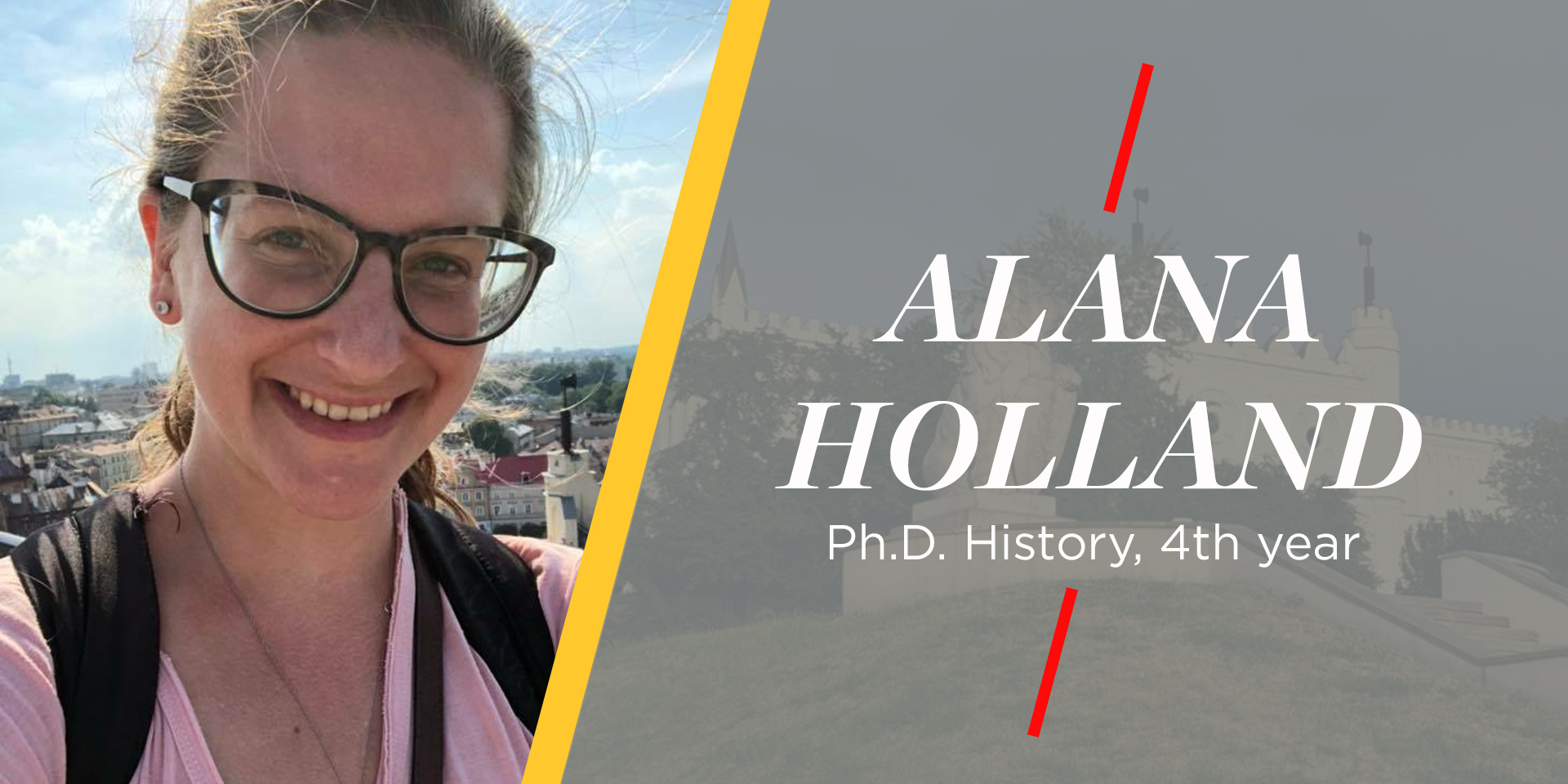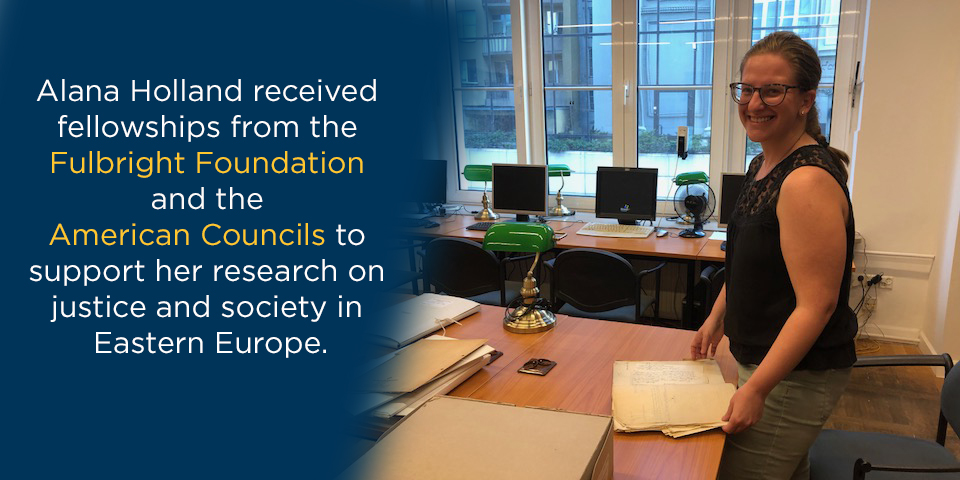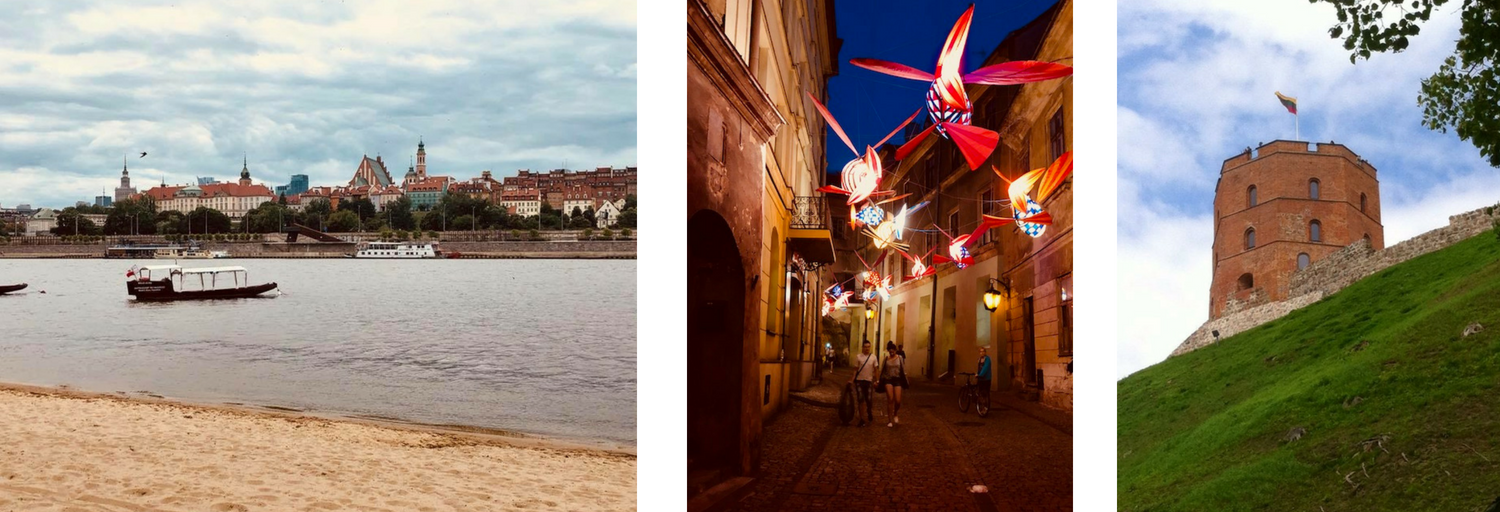
Program of study and year: History doctoral program, starting my fourth year
Hometown: Mountain Home, Arkansas
What are your research interests and why did you choose them?
My research focuses on the Holocaust and the history of modern Russia and Eastern Europe. I became interested in these fields from a really young age, in 5th grade. As I grew older I retained these interests and adapted them to whatever goal I had at the time, but I credit my undergraduate history professors at Arkansas State University and my Russian language/literature professors at the University of Montana for opening many academic and perceptual horizons for me. Law, justice, social conflict, memory, and historical legacy are the main themes of my research and have always intrigued me. I grew up in the American south, and so the legacy of slavery and racism has consistently guided my approach to memory and history.

Tell us what your PhD thesis is on in under 200 characters, make it Twitter-friendly:
After WWII, amidst broader political aims, the Communist regimes and local actors in Poland and Lithuania pursued retribution and justice on a spectrum for Jews murdered in the Holocaust.
What is one thing you think everyone should know about your research project or research interests?
My research invites us to interrogate many of the normative assumptions we have about justice and the societies in which it’s pursued.
What are you researching in Lithuania?
I’ll be researching Soviet criminal trials against people accused of crimes related to the Holocaust. Mostly I’ll be looking at a lot of former NKVD (People’s Commissariat for Internal Affairs of the Soviet Union,) KGB (Soviet Committee for State Security,) Ministry of Justice, and Communist Party archives, as well as newspapers and memoirs. I have three specific archives lined up in Vilnius, the capital, but do plan to take trips to regional archives. I’ll be affiliated with Vilnius University and will have a faculty advisor, and I do intend to meet other graduate students while there.
What advice would you give other students applying for research funding opportunities?

Have you been to Lithuania before? Asides from your research, what’s it like living in Lithuania for a year?
I visited Lithuania two years ago for pre-dissertation research and a Yiddish language program. Lithuania is fantastic! Amazing culture, lots of fun cafes and bars, and beautiful nature. The Lithuanians also love their basketball, just like we do in Lawrence.

Give a shout-out to a professor, mentor, advisor, or someone at KU who has helped you?

What do you plan to do after you graduate from KU?
I am aiming to work as a professional historian and professor. But I’m also interested in exploring analytical work for the government.
Be like Alana, learn more about the KU’s graduate program in history here.
All photos courtesy of Alana Holland